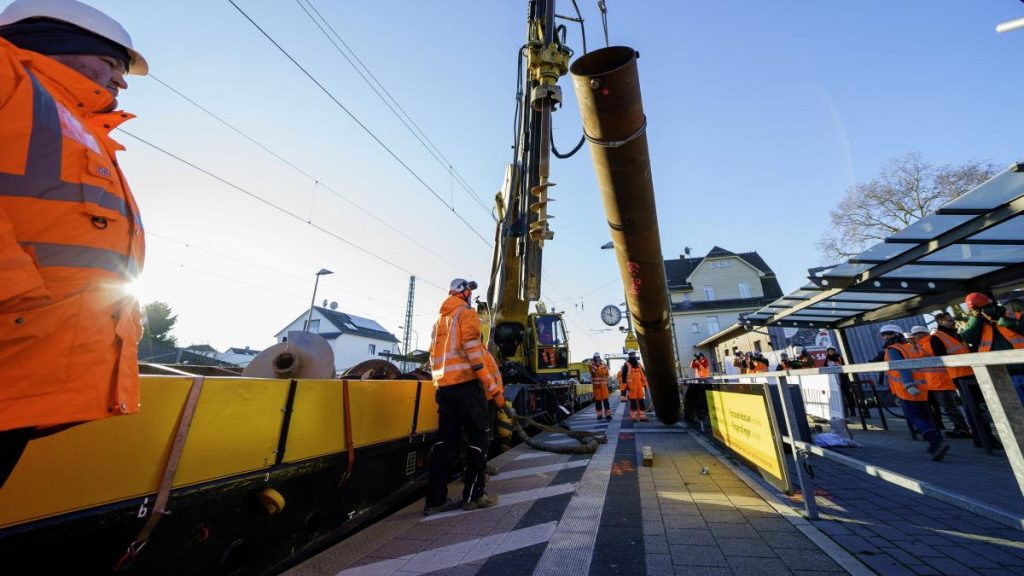The German Railways AG presented a prototype of their new buses in Berlin in September 2023, showcasing comfortable seats, large luggage racks, USB charging ports, and toilets in some of the violet-painted vehicles. However, on Wednesday, it was not possible to travel from Berlin to Darmstadt for the presentation of the 150 operational buses, as the only ICE train that could have taken passengers on time unexpectedly went out of service. These buses are part of a major effort to improve the deteriorating German rail system and will be used for replacement services during the total closure of the Riedbahn between Frankfurt and Mannheim for renovation from July to December.
The extensive renovation project aims to repair and modernize 40 major railway lines by 2030, starting with the Riedbahn. This includes upgrading platforms, underpasses, overhead lines, tracks, and switches along the route within five months to improve train speeds and increase maneuverability. The replacement of old signaling systems with electronic ones and the installation of components for the digital train control system ETCS are also part of the plan. Despite the high financial cost of 1.3 billion euros just for the Riedbahn, the closure of the track for five months will affect both passenger and freight services, with 30% of ICE and Intercity trains canceled and longer travel times for others.
During the closure, a significant portion of regional transportation will be handled by Wi-Fi-enabled buses, connecting passengers to alternative train routes or transporting them directly to Mannheim and the Rhine-Main region. With up to 1000 daily bus services running at intervals of five to 15 minutes and detailed departure information provided, the aim is to retain passengers in public transport during the renovation period. This replacement service is considered the best prepared by the German Railways to date and is intended to discourage commuters from switching to cars. However, the significantly longer travel times faced by passengers may challenge the successful implementation of this plan in the commuter-heavy region.
While the renovation of the Riedbahn is progressing, uncertainties loom over the continuation of similar projects on other routes and the funding of replacement services. With an estimated total cost of 27 billion euros by 2030, the financing of the seven-year mega-project remains uncertain, as does the funding for replacement services. While the German Railways will cover the costs for the Riedbahn replacement service, other upcoming projects will require a different funding model, potentially shifting the financial burden to regional authorities and service operators. The lack of clarity on funding sources for replacement services has sparked debates at both federal and regional levels, creating challenges for future railway maintenance projects.
The closure of the Berlin-Hamburg route from August to December this year for preliminary renovation work, followed by a major renovation project from 2025 to 2026, will require a significant railway replacement service. However, funding disputes between the federal government and regional authorities have stalled progress, with the legal framework for the renovation, the Federal Rail Expansion Act, blocked in the Federal Council. The resolution of these funding issues will determine the success of future rail renovation projects, with uncertainties over the availability of funds potentially jeopardizing the entire timeline for railway improvements post-2025. If agreements cannot be reached soon, the future of rail renovations in Germany remains uncertain.














